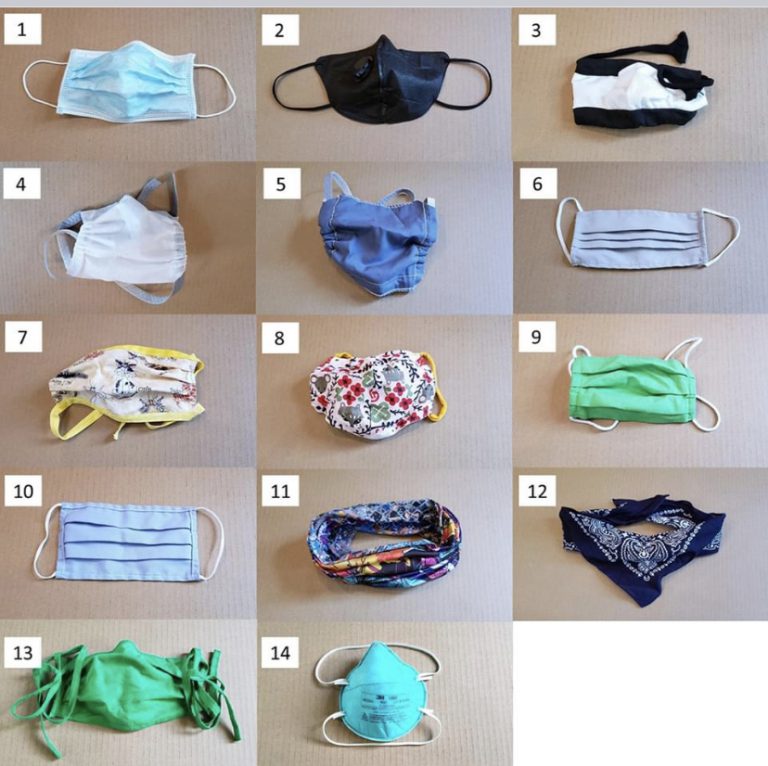Do you wear a face covering when out in public spaces? Thank you. But to add another layer of complexity, the type of face covering you wear matters. A recent study from Duke University (my alma mater!) demonstrated that bandanas and neck gaiters may actually be causing more harm than good. The problem is the porous nature of the fabric. The study demonstrates that if you sneeze or talk under a gaiter or bandana, the larger droplets may actually disperse into smaller droplets, which are lower in weight and mass. These lighter and smaller aerosolized droplets are more apt to linger in the air (which is the main avenue by which COVID is transmitted).
Based on the study results, the most protective masks (protecting others from you!) are N95 and surgical masks. But everyone in the world wearing N95 or disposable surgical mask is not sustainable. So, default to a cotton mask; they are still quite effective (reducing your expelled droplets by 10-40%) due to the multi-layers and tightly knit cotton. A good rule of thumb? If you can see through it when put it up against a light or you can blow through it easily, you are not protecting anybody. And continue to socially distance to further reduce your rate of transmission.
Remember, this pandemic has been so hard to contain because of asymptomatic carriers. And masks keep these carriers from unknowingly spreading the virus when they cough, sneeze or just talk.
I know this virus is complicated. But the guidelines are not. Wear a mask. Wash your hands. Socially distance. I’ll share something I said to my own mother the other day: “Just because it’s not convenient for us, does not mean we should ignore the science.” I’m not telling you what mask to wear. I trust and believe you are trying your best. But I want to share the science as it evolves, so you can make an informed decision. This study demonstrates that the right face covering works. And if we want this pandemic to subside, the-right-mask-wearing is the way to do it.
Thanks for listening and spread the word (not droplets). 😉
Love, Dr. Yang


